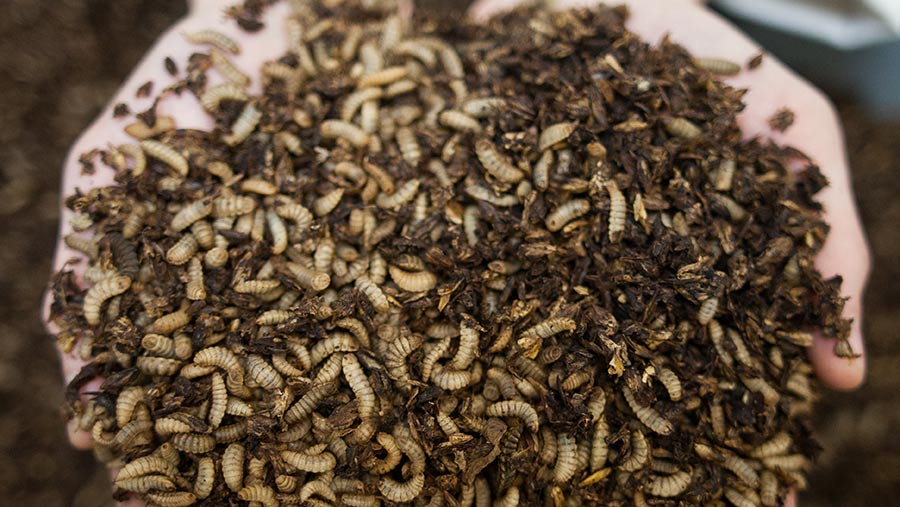Pig manure to grow insects for feed at Leeds University
 © Entocycle
© Entocycle Reducing river pollution and lowering protein imports for livestock feed are two potential gains from new work at the University of Leeds research farm into using pig manure as a feedstock for the black soldier fly.
The university has partnered with insect technology company Entocycle to host a self-contained insect-raising unit on its campus, at the Centre for Innovation Excellence in Livestock’s National Pig Centre – the UK’s largest and most advanced pig research facility.
See also: Mini insect farms to be rolled out on Morrisons’ egg farms
The project, which is expected to get under way in autumn 2023, will evaluate manure and slurries as a feedstock for the black soldier fly and other insect species under high-density and environmentally controlled conditions.
It is hoped that manure-fed black soldier fly larvae could one day be used as feed for livestock, to replace imported high-protein feeds such as soya bean and fish meal.
Performance
Several scientific studies in recent years have confirmed the benefits to animal health from a diet containing black soldier fly larvae, including improved growth performance in pigs and better meat quality.
Research has also shown that adopting a circular system makes good use of animal waste that is surplus to a farm’s nutrient requirements.
A 2021 study demonstrated that incubating pig manure with black soldier fly larvae substantially reduced manure nutrient levels by cutting nitrogen, carbon, energy, phosphorus and potassium values.
The larvae castings and excrement, known as frass, can also be used as a fertiliser or soil amendment.
